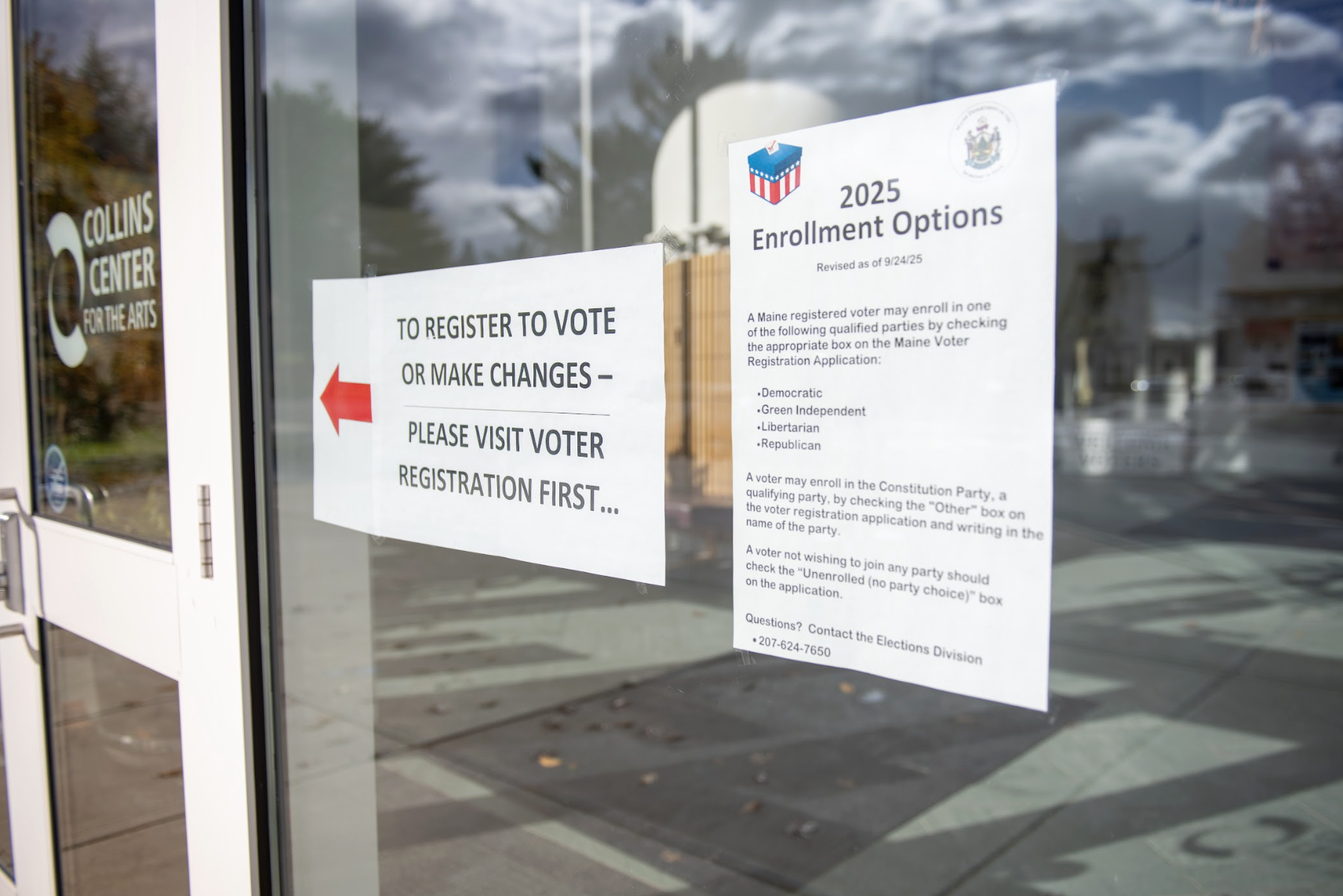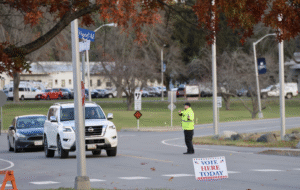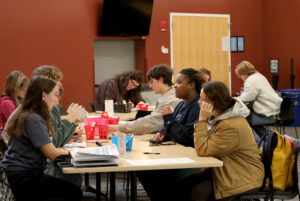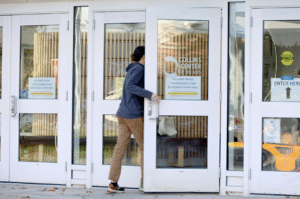Orono Town Council has two seats opening with councilors, Andrea Hardison and Leo Kenney’s terms expiring. The three council candidates are Hardison, Colleen Marzilli and John Quinn. The Maine Campus reached out to the candidates with questions regarding Orono, student wellness and the ongoing Crossland Hall considerations.
Let’s do a quick breakdown of these contenders.
Andrea Hardison
Hardison took over Sonja Birthisel’s three year term last year on the Orono Town Council. With the term expiring now, Hardison is on this year’s ballot. With her experience this past year on the Town Council, she wants to prioritize the proposed budget so that residents can trust where their money is going. Community is important for Hardison, being a resident of Orono since 1997, and a part member of the Community Development Committee.
Maine Campus:
What do you see as the biggest challenge for students living in Orono, and how can this be addressed at the town level?
Hardison:
There are a lot of challenges that students face, from being away from home, challenging themselves with their studies, to affordable and safe housing. A continuing goal of the Council is attainable house and fostering good neighbor relations. Most important for me are the neighborhood relations. There is a lot of value that residents/neighbors can provide to each other, and students ARE residents whether on or off campus.
Maine Campus:
Do you see any opportunities for the University and the Town of Orono to collaborate on public health or sustainability?
Hardison:
I do believe the Town and University can work together on many things. There are opportunities for research, education, and sharing of resources that would benefit both the Town and University.
Maine Campus:
How can the local government feel more accessible to students who may not feel represented?
Hardison:
There are committees and programs that students can be a part of. We now have a student liaison from the UMSG. We also have a great team at the town office who are available to answer any questions. Councilor contact information is also on the Town website. The first step is to show up. You matter to what is happening and will happen – speak up, ask questions – you will be heard and your participation welcomed.
Maine Campus:
How would you manage relations between the Orono town council and major institutions, like the University of Maine? For instance, what would your approach/response be to recent developments with Crossland Hall?
Hardison:
I am so impressed with the work Lincoln [Tiner] has done on the history of Crossland Hall and with the number of students and alumni who attended the Nov.. 3rd Council meeting. Our Town Manager, Assistant Manager, and our Department leaders strive to work with the University in a way that benefits both campus and Town. The history of Orono is important. I look forward to hearing what the legal opinions are and how we as a Town can work with the University and the students to preserve that history.
Colleen Marzilli
Marzilli is a nurse practitioner and professor at the University of Maine. Being a health care provider, she knows the importance of evidence-based decisions. Policies being made need to improve the quality of life for Orono residents, and her experience as the Executive Director of professional nursing gives her an important perspective. Hoping to take a seat in Town Council, she will serve Orono with the cornerstones of inclusion and community spirit.
Maine Campus:
What do you see as the biggest challenge for students living in Orono, and how can this be addressed at the town level?
Marzilli:
One of the greatest challenges for students living in Orono is feeling connected, to housing stability, local resources, and the broader community beyond campus. Many students face barriers such as high rental costs, limited transportation, and a lack of awareness of town services.
I believe the town can help bridge that gap by fostering a more integrated partnership. We can expand affordable and safe housing options, improve access to public transportation, and host regular “Orono Community Welcome” events to connect students with local businesses, health resources, and volunteer opportunities. Strengthening this connection not only improves student well-being, it also enriches the fabric of Orono itself.
Maine Campus:
Do you see any opportunities for the University and the Town of Orono to collaborate on public health or sustainability?
Marzilli:
Absolutely. We are uniquely positioned to model how higher education and local government can work hand-in-hand to advance community health and sustainability.
As a nurse, nurse practitioner, and someone that has served in higher education for over 15 years and passionate about students and Orono, I see many opportunities for collaboration: student-led community health fairs, wellness screenings for residents, and public education campaigns on mental health and substance use. Sustainability can be a shared focus as well, through joint recycling initiatives, climate-resilient infrastructure, and service-learning projects that link student innovation to town needs. These partnerships promote civic engagement, strengthen intergenerational connections, and make Orono a healthier and more resilient community for everyone.
Maine Campus:
How can the local government feel more accessible to students who may not feel represented?
Marzilli:
Local government should feel like a home base, not a closed door. Accessibility starts with visibility and relationship-building. I would advocate for creating regular Town Council office hours on campus and establishing a Student Advisory Committee that connects directly with the Council.
We can also improve communication by sharing town updates through university channels, social media, and campus organizations. When students see that their voices shape decisions, whether it’s about housing, safety, or sustainability, they feel invested in Orono’s future. As a leader, I’ve always believed that inclusion begins with invitation. We must intentionally invite students to the table.
Maine Campus:
How would you manage relations between the Orono town council and major institutions, like the University of Maine? For instance, what would your approach/response be to recent developments with Crossland Hall?
Marzilli:
My leadership philosophy is grounded in collaboration, transparency, and listening. We share one community, and our relationship should be one of partnership, not polarity. A commitment to safety, growth, and the well-being of residents and students alike is essential.
In challenging situations, my approach would be to bring all stakeholders, students, residents, university leaders, and town officials, together for open dialogue and joint problem-solving. We should lead with facts, empathy, and shared purpose.
As both a town resident and someone that has been in higher education for over a decade, I know that any college town’s strength lies in how well we collaborate. When we lead with communication and care, we build trust, and trust builds community.
John Quinn
Quinn is running for council on the platform of sustainability, prioritizing housing options, expanding walkability and protecting recreational opportunities. Quinn believes in a diverse and accessible community that makes an affordable town. Hoping to make stronger middle housing, he wants success for Orono so that residents can live comfortably here.
Maine Campus:
What do you see as the biggest challenge for students living in Orono, and how can this be addressed at the town level?
Quinn:
Maine Campus:
Do you see any opportunities for the University and the Town of Orono to collaborate on public health or sustainability?
Quinn:
Maine Campus:
How can the local government feel more accessible to students who may not feel represented?
Quinn:
Maine Campus:
How would you manage relations between the Orono town council and major institutions, like the University of Maine? For instance, what would your approach/response be to recent developments with Crossland Hall?
Quinn:






